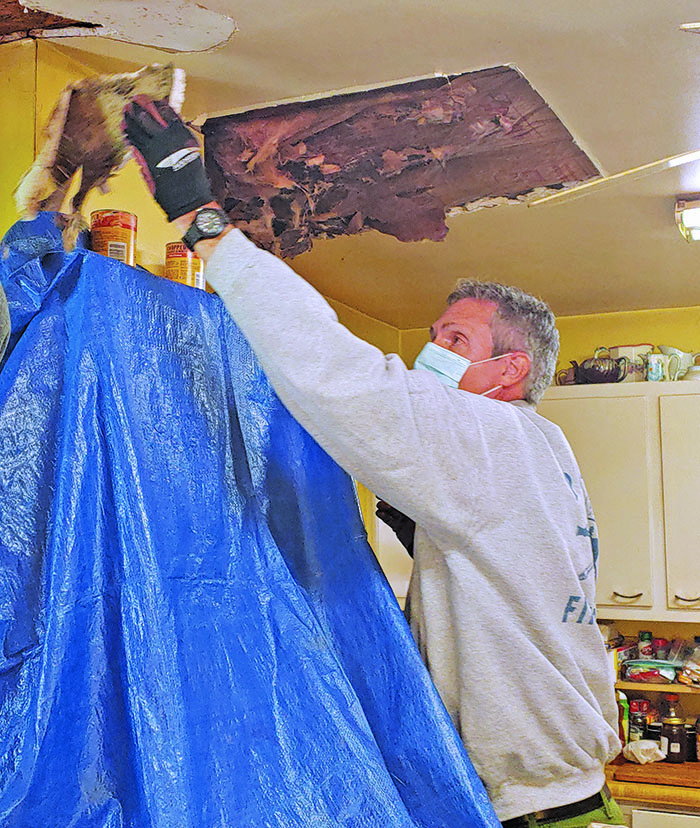As homes age, it is inevitable that minor repairs will be needed.
Unfortunately, if families do not have the ability to address those repairs, small repair needs quickly grow into larger concerns.
The AMY Community Housing Coalition is a collaboration among agencies, church, civic and volunteer organizations that combines ideas and resources to provide low-income individuals in Avery, Mitchell and Yancey counties with home repairs they need to improve the quality of their housing and quality of life.
When a home repair application is received, it is reviewed by the Community Housing Coordinator and then presented to the entire Coalition for consideration.
This allows organizations with different services to come together to provide streamlined services for each client. For example, an older adult with low income needs a ramp built, some plumbing work done and a new window or two.
While this may be too much for one organization or group to handle on its own, the coalition can split the projects among multiple partners so that the client receives all the services they need and no one organization has to face the entire cost or scope of work to be done.
Since May 2020, the Community Housing Coalition has raised $17,200 in private donations and small grants in addition to more than $25,000 in volunteer services and materials that have been donated.
Through this collaboration, 16 families have received critical home repairs and several projects are in progress.
“We are incredibly proud of what has been accomplished in support of our Avery, Mitchell and Yancey County neighbors,” said Community Housing Coordinator April Beck. “A large percentage of homes in this region are over 40 years old. Many of those homes belong to families with limited financial resources.
“The majority of our clients describe how their repair concerns started out small but became larger and more overwhelming in time. When people must choose between repairing a leak or buying food, it’s obvious what the choice has to be. Eventually, repair needs grow so large that they become hazardous to the residents’ health and safety.”
Another complication for clients is that skilled labor is difficult to find and is very expensive.
Whenever possible, the Community Housing Coalition uses volunteers to keep the repair costs down. When they are able, homeowners are asked to work alongside volunteers, which gives clients the knowledge and skills to make small repairs as they arise in the future.
“The need is great and there is a waiting-list in each county,” Beck said. “The Community Housing Coalition is always looking for new community partners. We need volunteers to help complete many of our projects, as well as financial support to make home repairs possible. When we can combine resources and work together, the responsibility of supporting our most vulnerable neighbors is achievable.”
In addition to improving the quality of homes, the Housing Coalition is focused on the larger task of increasing the availability of decent, low-income housing.
“The nationwide housing crisis has infiltrated rural Western North Carolina,” Beck said. “Rural mountain communities face very unique challenges and it is essential that everybody work together to ensure that all people have a warm and safe place to live. This work is critical for our communities to thrive.”
Call Beck at 406-4705 to learn about ways to partner with the Coalition and support the community through the aforementioned work.

